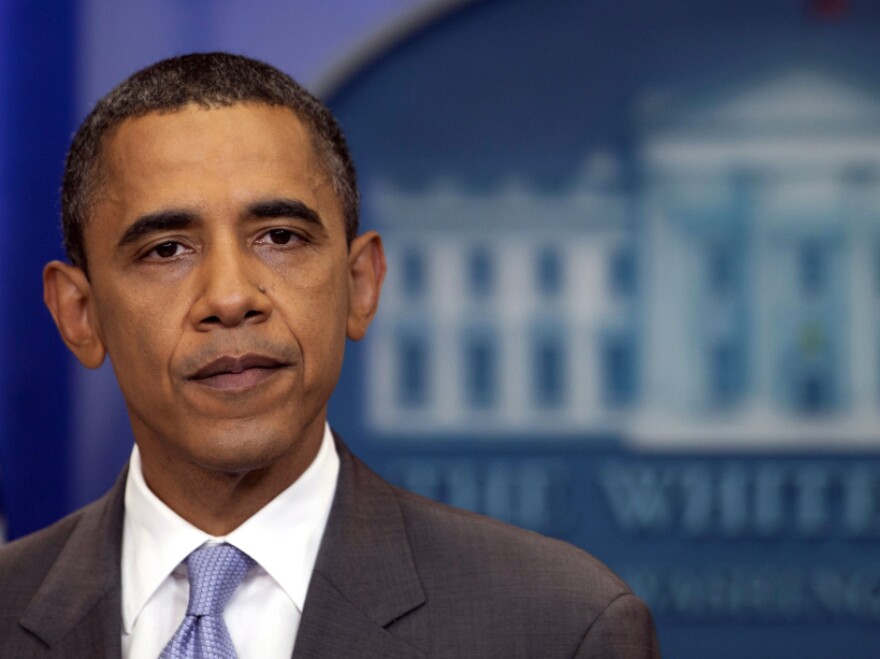Stephen F. Hayes is a senior writer for The Weekly Standard.
According to the Commerce Department numbers released Friday, the U.S. economy is growing at just 1.3 percent. Maybe. First quarter growth, initially reported as a disappointing 1.9 percent, was revised drastically down to just 0.4 percent. Those numbers are depressing enough. The downward revision of first quarter growth suggests that even the woeful second quarter number may be optimistic. And it comes after five consecutive quarters of a slowing economy — with growth of just 3.9 percent, 3.8 percent, 2.5 percent, and 2.3 percent before the economy stalled out at 0.4 percent in the first three months of this year.
That's not all. Unemployment has risen for three consecutive months. It's now 9.2 percent. Nearly half of the unemployed have been seeking work for longer than six months — the highest long-term unemployment rate since the Great Depression. And the GDP numbers out Friday suggest that many more American workers will be added to the unemployment rolls in the coming months.
By virtually every available metric, the U.S. economy is heading in the wrong direction.
Remember this over the next 15 months: The economy has been slowing for reasons that had nothing at all to do with the debate over the debt ceiling that preoccupied Washington for four weeks in July 2011. Nothing.
The White House and its most reliable allies will spend much of the time between now and November 2012 trying to convince you that the opposite is true. In some ways, the president's reelection depends on it. They want you to think that the Obama Recovery was humming along until Republicans, answering to "special interests," brought it grinding to a halt by manufacturing a crisis on the debt ceiling.
Bill Burton, former White House spokesman who is now running Obama's SuperPac, has sent out a stream of tweets in recent weeks seeking to blame Republicans for the economy. One day he points to George W. Bush. The next it's John Boehner, then generic Republicans. "Each day Republicans obstruct progress it seems more and more as if they believe they benefit politically if they hurt America economically."
In explaining the poor June unemployment numbers, Obama himself suggested that the debt ceiling debate was partly to blame. "The sooner we get this done . . . the sooner we give our businesses the certainty that they need . . . to grow and hire."
Time magazine columnist Joe Klein amplified the White House talking points in a column last week. "The uncertainty caused by the Republican anarchy has already damaged the economy, businesses are waiting to see what the interest rates will be and therefore delaying plans to expand," he writes. "That uncertainty, added to the higher oil prices caused by the Arab Spring, the European debt crisis, and the Japanese earthquake, could well bring us a double-dip recession." His conclusion, with characteristic reserve: "Osama bin Laden, if he were still alive, could not have come up with a more clever strategy for strangling our nation."
Got that? The economic slowdown that started in January 2010 came as a result of a debate in Congress 19 months later.
These are the arguments you make when reality is unhelpful. Obama campaigned on a promise to fix the economy. He made his case at nearly every campaign stop. But he did so most emphatically during a high-profile speech in Ohio shortly before the election. In that speech, he declared that remaking the economy "is why I'm running for president." Exit polls showed that a majority of Americans chose him for that reason, too.
He had two years to run the country with a Democratic Congress. Almost immediately, he signed an $800 billion stimulus package to jump-start growth and lower unemployment. His economic team famously predicted that if it passed, unemployment would remain under 8 percent. They were wrong.
The same crowd now claiming to be so concerned about the effects of "uncertainty" on businesses spent much of the first two years of the Obama administration concocting a new entitlement that is generating literally tens of thousands of new health care regulations. And rather than boosting the economy by "bending the cost curve down" on health care spending, as the White House promised, a report last week from the Centers for Medicare and Medicaid Services projects U.S. health care spending will rise significantly — by 8.3 percent in 2014, the first year under a fully implemented Obamacare. By 2020 it will have doubled.
It could have been worse. Remember, if Obama had gotten his way last year, taxes on top earners would have been raised at the beginning of 2011 — just as the current slowdown intensified. Treasury Secretary Tim Geithner argued last August that raising those taxes in January 2011 would have been "good policy" because the recovering economy was strong enough to absorb them. "The economy can withstand that," he assured us two months after the Obama administration kicked off "Recovery Summer," a season announced in an official White House press release.
This is what policy failure looks like. And no matter how hard the White House and its allies try to convince us other-wise in the coming months, there is no escaping the central fact of the 2012 election. It's Barack Obama's economy.
Copyright 2020 The Weekly Standard. To see more, visit . 9(MDAxNDQ2NDAxMDEyNzU2NzM2ODA3ZGI1ZA001))


